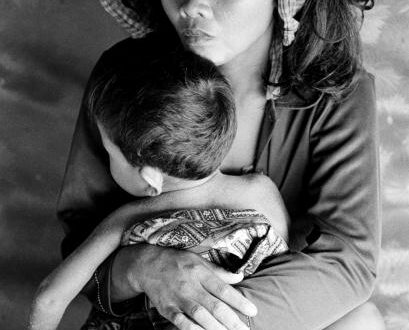Equip Refugees to Thrive
Have you wanted to help refugees but didn't know how?
Chrys makes serving refugees a family affair. Twice a week, she and her four children down smoothies and pile into their van. They head to For the Nations Refugee Outreach where Chrys teaches English to a class of that includes Syrian, Iraqi and Congolese men, an Ethiopian, Eritrean and Sudanese women. Eleven-year-old Oliver helps these adults follow along with their reading while nine-year-old Truett and seven-year-old Elliot assist in a beginner’s class where they help students learn their letters. Chrys views these bi-weekly visits as a chance for her family both to serve in a meaningful way and to teach her children to appreciate and love people who differ from them. Her husband, Mike, works during the day, but on some weekends and evenings he has set up used computers for use in another classroom.
You may not be an English teacher or a computer geek, but if you have a desire to serve refugees, opportunities abound.
How can you be a part of helping these displaced people, however, if you don’t know where they live? Do an internet search for “Refugee Resettlement Agencies [Your State or Country] and contact the resettlement agency nearest you to connect to refugees in your area.
When immigrants first arrive in the United States, they have a lot to accomplish, but often lack the language skills or cultural know-how to get things done. They need to register children for school, take them for immunizations, go to appointments, and enroll in English classes. They require a sort of triage team that provides transportation and help to accomplish these basic tasks. Can you drive a mom and children to school and help them wade through the registration process? You can decode school supply lists and help a family find the correct notebooks, markers, and folders for their children. You can help a family make a doctor’s appointment and find the clinic at the right day and time. Tasks such as these may seem insurmountable for many refugees unless they have a helper. Later, you can teach your new friends to do these things for themselves.
Esther walks alongside Middle Eastern newcomers in the Dallas area. She remembers the triumph she and her Iraqi friends, Mustafa* and Sara felt when they successfully made their own doctor’s appointment. But she also remembers when her friends had problems neither she nor they could solve. On one occasion her Muslim Iraqi friends faced a landlord trying to extort money from them. She and they prayed together and saw God act. The Lord answered by removing the landlord, showing her Muslim friends that God answers prayer.
After the initial challenge of getting settled, refugees can use a less frequent helping hand to navigate American life. Can you sort mail and help your friends distinguish between a bill and a magazine subscription offer, or go through the papers their children bring home from school and assist parents in determining what they can discard and what they must save or fill out and return? Your refugee friends may need someone to help them understand a parent-teacher conference, a job application or how to report a maintenance problem in their apartment.
Lack of transportation often prevents new residents from becoming independent. Take time to teach your friends to use mass transit in your area. If you live in an area with little or no mass transit, consider teaching a newly arrived resident how to drive.
Newcomers also need jobs and struggle to find ones that pay a living wage. Businessmen, consider which jobs you might hire these workers to do. Network with refugee support agencies in your area to find suitable employees. Sam first coordinated a team from his church to help a family furnish their apartment. The experience piqued his interest in the needs of displaced people. He now plans to work with other small businessmen to start a business to employ them.
In addition to these many practical needs, displaced people need to belong. View your refugee friends as people, not projects: visit them without an agenda. Drink cardamom tea or coffee while you enjoy flakey pastry and look at family photographs. Chat and laugh, or if a language barrier prevents conversation, simply sit with them. Welcome them into your home. Attend their children’s school programs and go to family events. Serve as their community.
Mustafa and Sara and their growing family moved to the Dallas area from Iraq a number of years ago. Their lives haven’t always been easy. Health problems and other difficulties have made their assimilation challenging. At a gathering with American friends, they ate and laughed and celebrated their daughter’s birthday with an angel food cake. Each person shared what they thanked God for. The husband looked around at his new friends and waved his hand toward them. “I’m thankful for all of you.”


